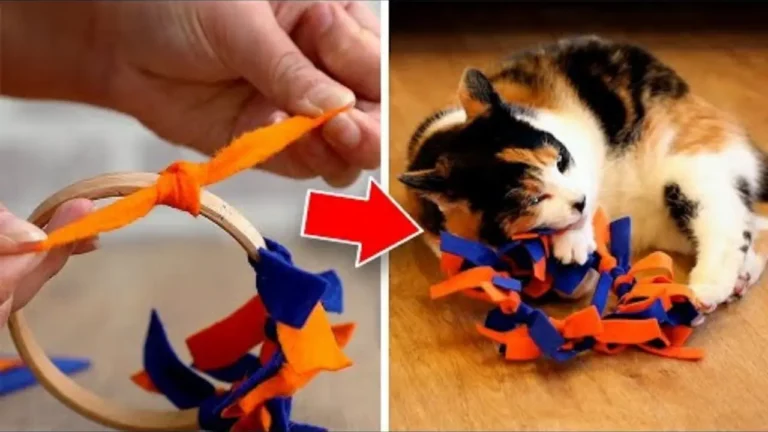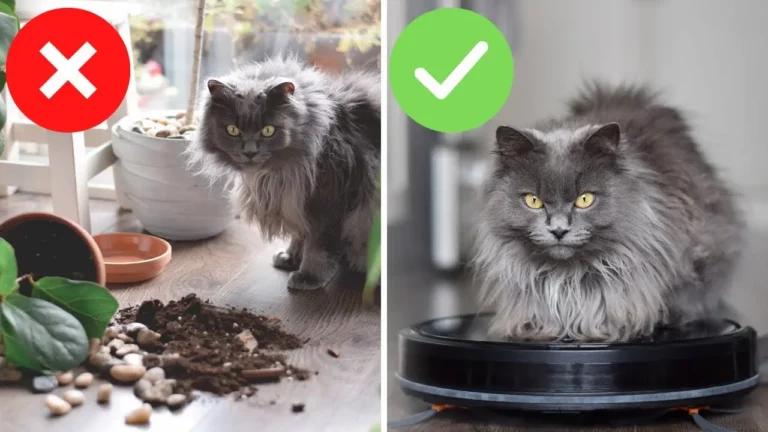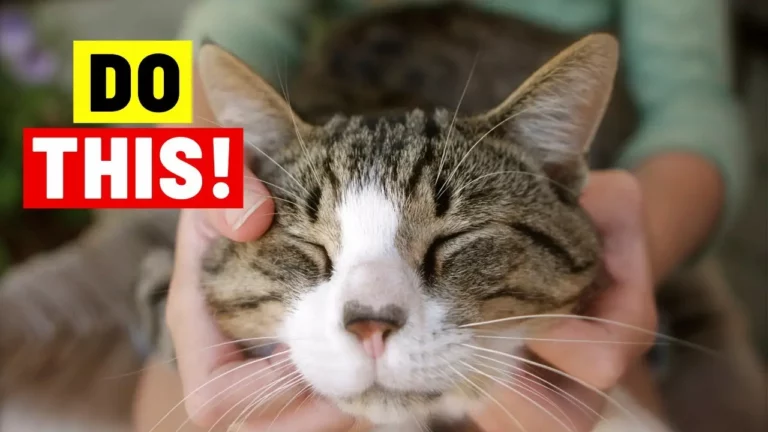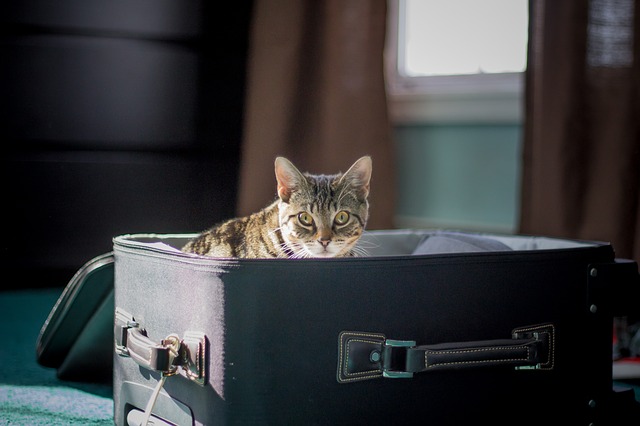10 Things a Cat Will NEVER Forgive You – Be Cautious!
Cats, with their keen sense of memory, can hold grudges over certain actions that disrupt their trust and comfort.
Teasing or pranking a
Rough play that pushes boundaries might result in long-lasting anxiety or aggression.
Similarly, forced interactions that ignore a
Then there’s declawing, a procedure so traumatic that it leaves cats feeling perpetually vulnerable and betrayed.
Curious about what else a
Teasing and Pranks
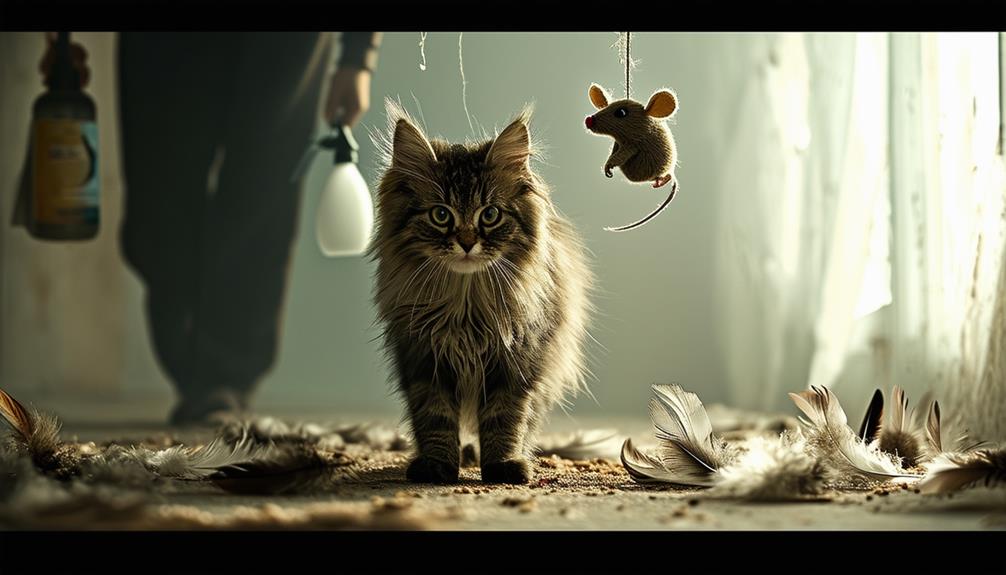
Teasing and pranking a
When someone constantly teases a
Cats, sensitive by nature, can develop deep-seated fears, leading to behaviors like hiding, aggression, or even refusing food.
Practical jokes, such as scaring them with loud noises or dressing them in costumes, can confuse and frighten them. Over time, these actions erode trust, making it difficult for the
Respecting a
Rough Play
Engaging in rough play with a
Cats interpret aggressive gestures differently than humans, and what might seem like harmless fun to you can be distressing for them.
When you play too roughly, it disturbs their sense of security and can make them wary of your touch.
This kind of interaction can break down trust, causing your
Instead, use gentle, interactive toys to stimulate their hunting instincts in a positive way.
Respect their boundaries and pay attention to their body language.
Building a bond based on trust and understanding will make sure your
Forced Interactions
Forcing interactions with a
Cats value their autonomy, and any attempt to push them into social situations they’re uncomfortable with can backfire.
Owners might find themselves facing a hiss or scratch, with their
Respecting a
Instead of imposing affection, allow the
Cats are creatures of habit and comfort, and pushing them out of their comfort zone without consent disrupts their sense of security.
Always let a
Loud Noises
While respecting a
Cats are inherently sensitive to sudden, jarring sounds like thunder, fireworks, or even a vacuum cleaner.
These noises can cause them to hide, become anxious, or exhibit stress behaviors like excessive grooming or scratching.
Maintaining a peaceful environment helps prevent these reactions.
If loud noises are unavoidable, offering a safe, quiet retreat—like a cozy bed in a secluded room—can provide comfort.
Playing soft music or using a white noise machine can also help mask disruptive sounds.
Declawing
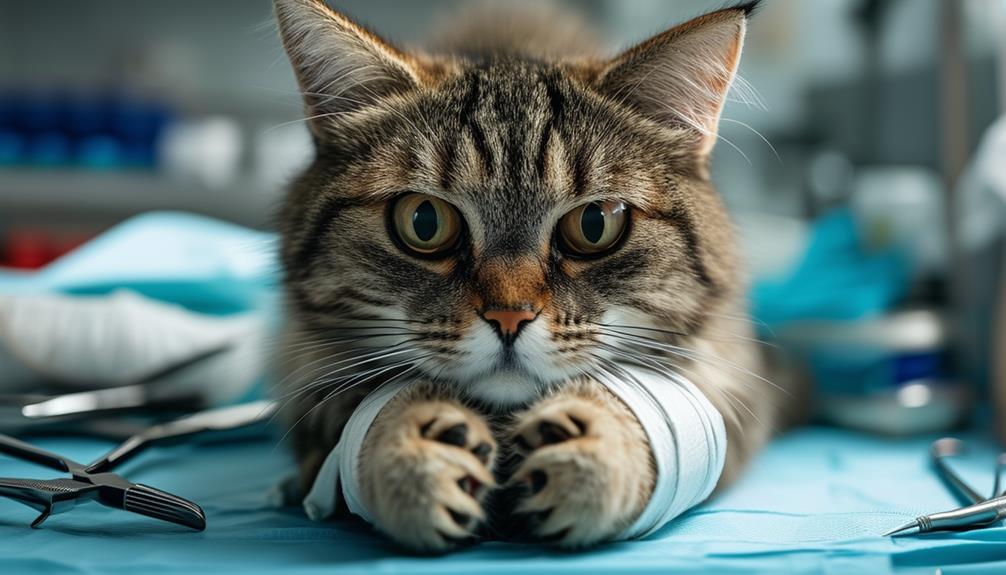
Declawing is a highly controversial practice that can lead to severe physical and emotional consequences for cats.
It involves the removal of the last bone in each toe, not just the nail, causing immense pain and potential long-term issues.
Cats may develop behavioral problems like increased aggression or litter box avoidance due to the discomfort.
The loss of their primary defense mechanism leaves them feeling vulnerable and insecure.
Declawed cats can struggle with balance and mobility, affecting their ability to climb and play.
This procedure fundamentally alters a
It’s essential to explore humane alternatives to declawing, such as regular nail trimming and providing scratching posts.
Ignoring Grooming Needs
Neglecting grooming needs can greatly affect a
When a
Mats can pull on their skin, leading to sores and infections.
Additionally, long, unchecked nails can curl into their paw pads, making every step agonizing.
Cats are meticulous groomers, and if they’re not helped in areas they can’t reach, it can lead to a sense of neglect and stress.
Regular grooming sessions, including brushing and nail trimming, not only safeguard their physical health but also strengthen the bond between
Skipping these essential tasks isn’t easily forgiven and can damage trust.
Disturbing Their Sleep
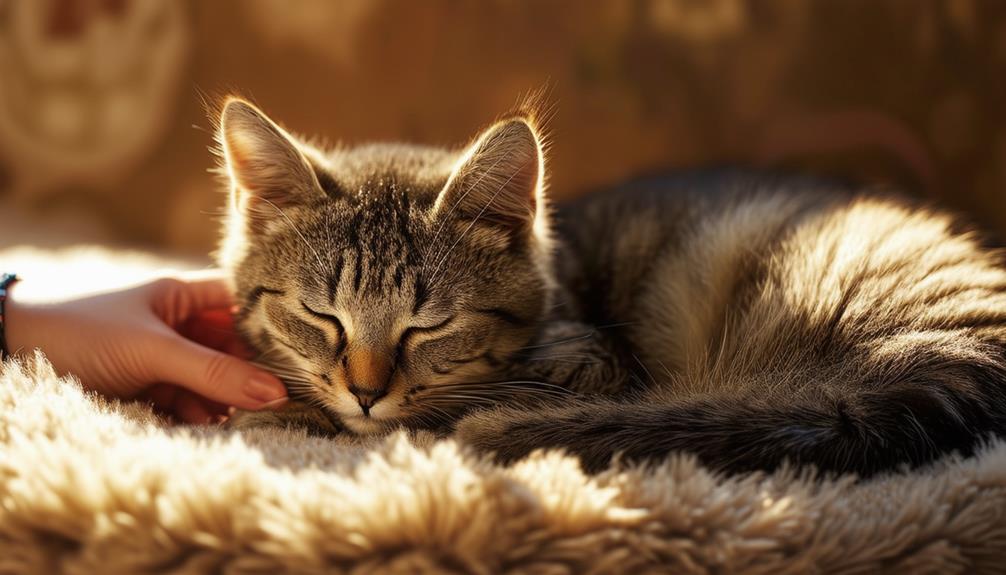
Cats need their sleep undisturbed to maintain their overall health and well-being.
When their precious nap time is interrupted, it can lead to stress and irritability.
Cats, known for their love of long, peaceful slumbers, rely on these rest periods to rejuvenate.
Disturbances, whether loud noises or sudden movements, can disrupt their natural sleep patterns.
Over time, this can affect their mood and even their physical health.
Respecting a
Creating a quiet, cozy sleeping space where they feel safe will guarantee they get the rest they need.
Rushed Introductions
Rushing introductions between cats and new people or pets can lead to fear, aggression, and long-lasting trust issues.
When a
This behavior isn’t just a one-time event; it creates a memory of stress and fear associated with that person or pet.
Instead, gradual introductions help build positive associations over time. Allow the
This method respects their need for safety and control, fostering a sense of security.
Patience and understanding are key to ensuring a harmonious relationship and a trusting, content
Harsh Discipline
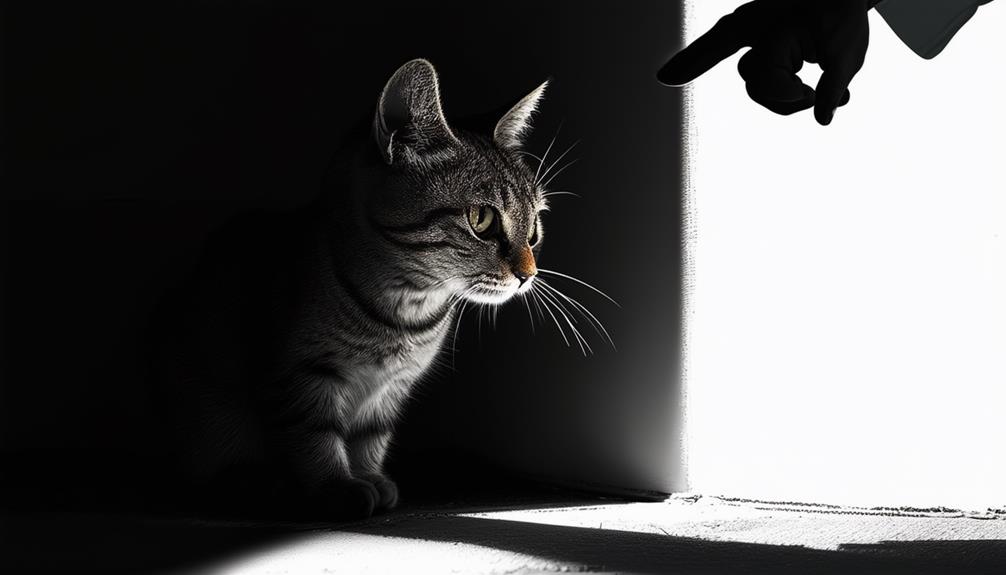
When owners resort to harsh discipline, they often damage the trust and bond they’ve built with their
Cats are sensitive creatures, and sudden, aggressive actions create fear and confusion. Instead of understanding the behavior, the
Harsh discipline, like yelling or physical punishment, teaches them to associate fear with their owner, eroding the sense of security they need.
Positive reinforcement, such as gentle encouragement and treats, is far more effective in guiding their behavior.
Building a loving, respectful relationship nurtures trust and ensures a happy, well-adjusted feline friend.
Disrespecting Territory
Disrespecting a
Cats are territorial creatures who need their own space to feel safe. When their designated areas are invaded or disrespected, it can result in fear aggression and trust issues.
Moving their belongings, allowing other animals to intrude, or rearranging their environment without considering their feelings can cause significant distress.
It’s crucial to respect their need for personal space, especially their favorite spots and hiding places.
Providing consistent access to these areas and avoiding sudden changes helps maintain their comfort and well-being.
Conclusion
In understanding cats, it’s crucial to respect their boundaries and guarantee their comfort.
Just as in the story of ‘The Boy Who Cried Wolf,’ repeated missteps can erode trust permanently.
Avoiding actions like teasing, loud noises, or forced interactions will help maintain a strong bond.
By recognizing and honoring a



